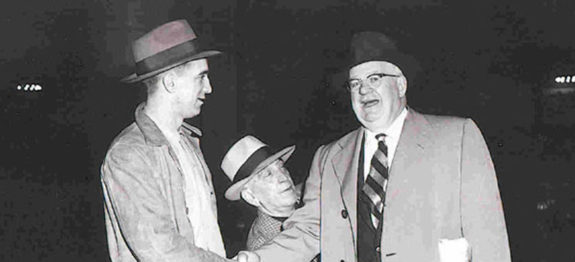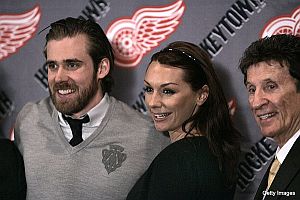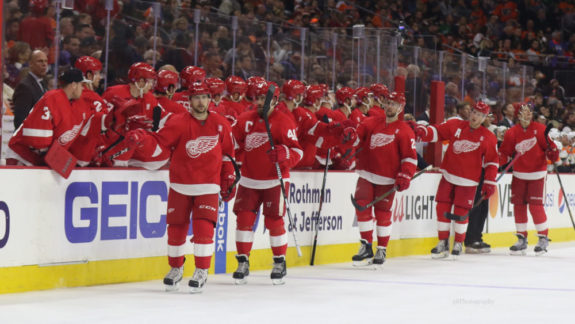Over the weekend, a disgraceful organization ripped off the Detroit Red Wings logo and used it as their own in a Charlottesville, Virginia white supremacy protest. This description is the only press I’ll give this organization – their views are despicable and should be left in history where they belong.
When news of this broke, the Red Wings organization quickly issued a statement lambasting the infringement and the views of the offending group.
— Detroit Red Wings (@DetroitRedWings) August 12, 2017
This is not a logo of hate. It’s a symbol of history, tradition, pride/respect that has brought joy to countless people. #Charlotesville pic.twitter.com/ClVExDC3y4
— John Michael Curran (@jmcurran28) August 12, 2017
What this asinine group does not understand is that the Red Wings logo has long stood for equality, diversity, and the American Dream. It’s been this way since the logo was first worn on Detroit jerseys starting in 1932. And it will continue to be this way long into the future. Here’s why:
Original Six Parity
When Jack Adams ran the Detroit Red Wings, he made more than a handful of trades. Some helped the organization and others seemingly backfired. There may be another way to look at the latter group of trades, though.
In Red Wings columnist Bob Duff’s book, 100 Things Red Wings Fans Should Know & Do Before They Die, former coach Jimmy Skinner was quoted as saying the following about Adams’ odd decisions to move quality players:
If you ask me, Jack kept the league going. He made trades that would help other teams, even though he was hurting himself. He wanted the league to be strong.

Adams wanted the six NHL teams on an equal playing field even though his team was on top – the Red Wings had just won four Stanley Cups in six years before Adams unleashed a flurry of trades.
Ilitch’s American Dream
Before purchasing the Red Wings and Detroit Tigers, Mike Ilitch achieved the American Dream and carried that “from-humble-beginnings” attitude through his tenure as team owner.

Ilitch was born in Detroit just before the Great Depression hit. His parents were Macedonian immigrants who had recently come to America. After four years with the U.S. Marine Corps and a short baseball career, Ilitch and his wife, Marian, started what would become Little Caesars. In time, they took their single-location restaurant and transformed it into a global company, employing thousands of people across the world.
A common theme for the companies and organizations that fall under Ilitch Holdings, Inc. is their commitment to corporate social responsibility. Everyone gives back and helps others, regardless of demographics. In addition, the Red Wings, Tigers, Little Caesars, and other Ilitch organizations employ a diverse workforce around the world.
Red Wings from Many Nations
It’s no secret that the Red Wings have rostered many players in their history who hail from various parts of the globe. A quick glance at their all-time roster reveals current and former players from the United States, Canada, Sweden, Finland, Russia, Norway, France, Ireland, Lebanon, England, Czech Republic, Slovakia, Germany, Denmark, Austria, Scotland, Slovenia, Belarus, Poland, Yugoslavia, and Switzerland.

In addition, Detroit was one of the first NHL organizations to employ Swedish players when they signed defenseman Thommie Bergman in 1972. They later helped Sergei Fedorov defect from the Soviet Union and eventually formed the Russian Five, which revolutionized the game.
Bergman, Fedorov, and all of the other Red Wings throughout history came from unique upbringings before reaching the NHL. In Hockeytown, they donned the Winged Wheel and became a family each season. Sure, there were some disagreements from time to time, but it was in everyone’s best interest to put the team first.
Final Word
In addition to the three instances above, there have been many other acts of equality throughout Detroit’s past. Participating in the NHL’s Hockey is for Everyone campaign, Colleen Howe becoming the first female sports agent, countless donations to local organizations – the list goes on.
The person or people who decided to use the Red Wings’ Winged Wheel as the logo for a group committed to hate clearly did not do their research. Hockeytown’s famous emblem stands for the polar opposite of what these individuals want. It represents the diversity and equality that the vast majority of us hold dear.